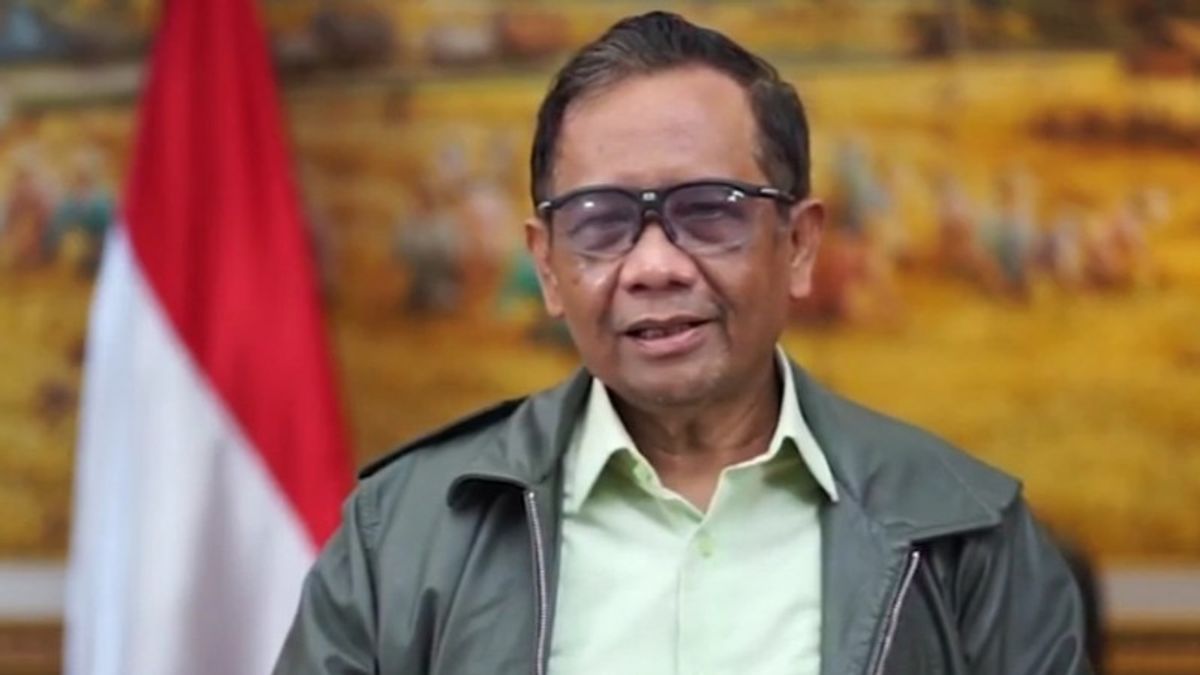JAKARTA - Coordinating Minister for Political, Legal and Security Affairs Mahfud MD assessed that the decline in the democracy index in Indonesia does not mean that the Joko Widodo (Jokowi) government is repressive. The decline in the democracy index is said to be influenced by various factors.
The decline in the democracy index in Indonesia, said Mahfud, is a common problem that must be solved not only by the government, but also by all community groups.
"Democracy index goes down not only on the government, but on the assessment that there is a democratic culture. If democracy wants to be called a general election, it has a high value," said Mahfud MD, Wednesday, September 29.
He conveyed that Indonesia's democracy score, particularly in relation to the holding of general elections, was relatively good because each party was free to campaign and nominate themselves.
However, Indonesia's democracy scores poorly when it comes to freedom of expression. The reason, continued Mahfud, is that there are people who tend to use violence when expressing and expressing opinions.
"It's not because of the arrests, the democratic culture is down," said the Coordinating Minister for Political, Legal and Security Affairs.
In the dialogue, Mahfud conveyed that the government was committed to fulfilling the rights of citizens' opinions through the revision of the Electronic Information and Transaction Law (UU ITE).
"We will make (later) the ITE Law so that people who speak do not need to be arrested, but can be reconciled," said Mahfud.
He conveyed that the judiciary in Indonesia would not just punish anyone.
Therefore, Mahfud asked law enforcement officials not to immediately arrest the reported person because of his public remarks.
"No need to be arrested, just reconcile the person. If it can't be reconciled, then it can be processed legally," he said.
This year, The Economist Intelligence Unit published a report that Indonesia's democracy index in 2020 was ranked 64th.
According to the report, Indonesia is in the category of rudimentary democracy (flawed democracy).
Meanwhile, the Indonesian Democracy Index (IDI) which is evaluated by the Central Statistics Agency every year shows a decline in the national average score from 74.92 in 2019 to 73.66 in 2020.
However, the average IDI score in 2020 is still higher than the score in 2018 of 72.39.
The English, Chinese, Japanese, Arabic, and French versions are automatically generated by the AI. So there may still be inaccuracies in translating, please always see Indonesian as our main language. (system supported by DigitalSiber.id)








